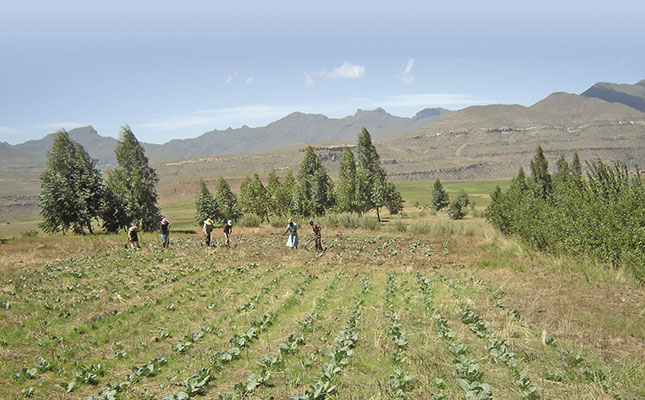
Photo: FW Archive
The Department of Agriculture, Land Reform and Rural Development is in the process of reviewing, reengineering and redesigning the implementation of its Presidential Employment Stimulus (PES) vouchers, to address challenges identified by various stakeholders.
In a statement issued on Thursday, 13 January, the department announced that it was suspending the implementation of the PES vouchers aimed at supporting subsistence producers, following “endless complaints from beneficiaries and the South African community at large”.
Neo Masithela, chairperson of the African Farmers’ Association of South Africa (AFASA), said the suspension was unfortunate, but AFASA had already asked the department last year to also include other previously disadvantaged farmers in the programme.
He said the association had argued that this would increase the impact of the programme in terms of job creation and food security.
Masithela added that AFASA had suggested that the department work through commodity organisations to manage the programme and identify beneficiaries. These associations had the best intelligence on what could and could not work, and many had specific criteria that could be used to establish the suitability of a candidate.
“The way things worked out, many of the beneficiaries were uninterested in farming and even tried to sell vouchers to our members.”
Another concern was that beneficiaries were not always assisted where they were, with Masithela indicating that he had heard reports of some having to drive more than 160km to fetch inputs, despite having suppliers in their immediate vicinity.
Noko Masipa, DA MP and member of Parliament’s Portfolio Committee on Agriculture, Land Reform and Rural Development, said he was specifically concerned about reports of suppliers attempting to profit from the vouchers.
This was reportedly done by reducing the value of the products subsistence farmers were able to procure by up to 27% of the value of the voucher, thereby increasing the commission earned from the transaction.
“The DA supports any agricultural initiative to improve food security and create and retain jobs, but [do not] condone initiatives that empower third parties whose role is unclear. This is another example of poor governance resulting in wasteful expenditure,” Masipa said.
The department was unable to respond to Farmer’s Weekly’s questions on the matter at the time of publishing, but a statement issued earlier this month warned against the misuse of PES vouchers.
This followed reports of recipients exchanging or selling the vouchers for cash, and suppliers charging up to 50% in additional costs to redeem these vouchers, despite prices being fixed during the period of the contractual agreement with the department.
The department said in its earlier statement that suppliers who charged extra costs would be blacklisted, while producers who were caught selling or using the vouchers for other purposes would be barred from receiving any other government support in the future.










